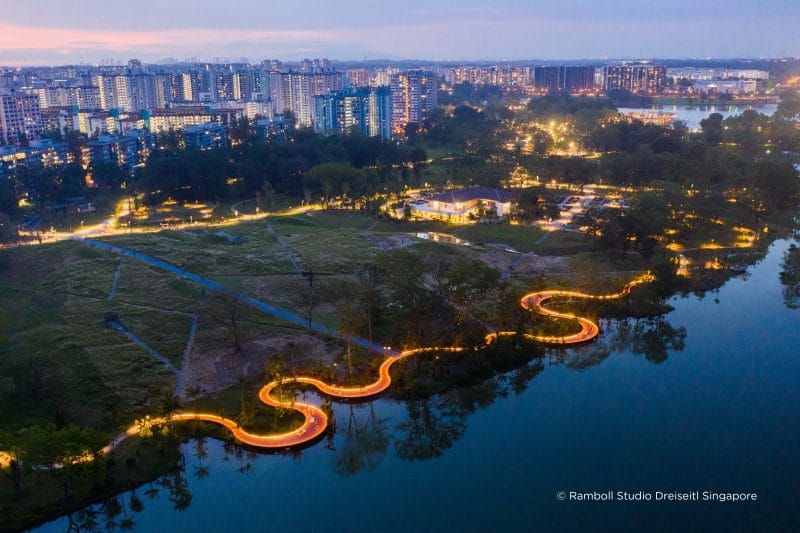Solution provider

Ramboll is a leading international architecture, engineering, and consultancy company, owned by the Ramboll Foundation.
Case
Biodiversity


Ramboll is a leading international architecture, engineering, and consultancy company, owned by the Ramboll Foundation.
Add the case to your visit request and let us know that you are interested in visiting Denmark
Jurong, known for its heavy industrialization, faced a significant challenge in balancing urban development with the preservation of its natural heritage. The 53-hectare Jurong Lake Gardens project aimed to restore the landscape’s historical swamp and forest ecosystems while fostering community engagement and recreation. Amidst the urban sprawl, the challenge was to create a green sanctuary that reconnects people with nature and enhances biodiversity in the area.
To address this challenge, Ramboll spearheaded a multifaceted approach centered on water-sensitive urban design and ecosystem regeneration. The team meticulously planned and executed the restoration of swamp forests and wetlands, leveraging expertise to create a public attraction that would resonate with all segments of society. Elements such as allotment gardens, nature-themed play areas, and sports facilities were strategically integrated to encourage community participation. Notably, the design prioritized enhancing habitats for wildlife and ensuring tranquility within the gardens. Innovative features like the Clusia Cove water playground, designed to mimic coastal water movements, showcased the intersection of nature and recreation.
The completion of Jurong Lake Gardens marked a significant milestone in Singapore’s journey towards sustainable urban development. The project not only restored natural ecosystems but also revitalized the community spirit within the heavily industrialized region. By providing accessible green spaces and recreational amenities, the gardens fostered a sense of belonging and well-being among residents. Moreover, its integration into the broader network of green spaces and waterways exemplified the Urban Redevelopment Authority’s commitment to decentralization and improved liveability. Jurong Lake Gardens serves as a blueprint for future urban projects, showcasing how environmental conservation and community-building can coexist harmoniously to create healthier, more vibrant communities.